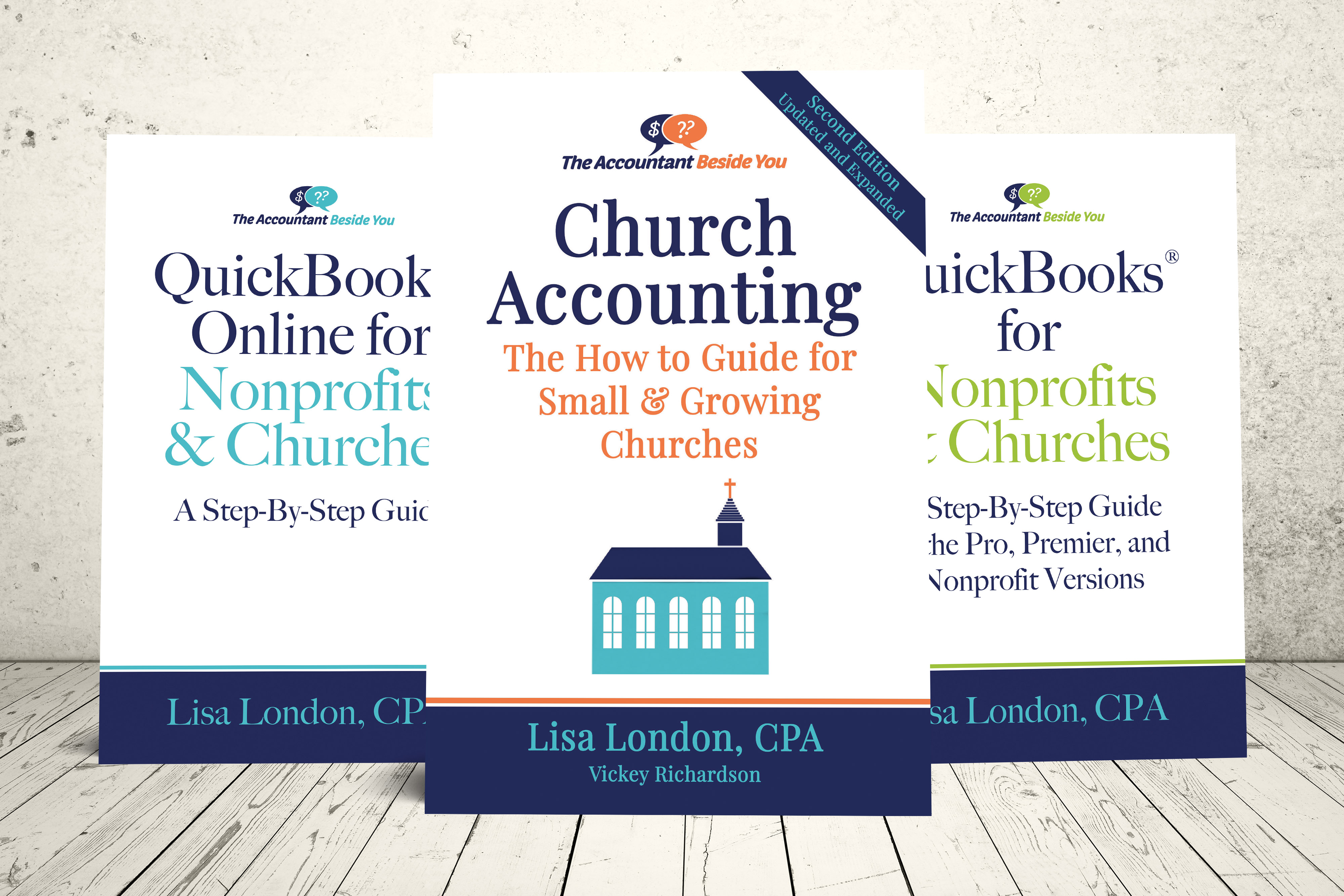Issuing Contribution Receipts
Researching when to issue contribution receipts is vital for any organization that accepts donations. Equally important is understanding when not to issue these charitable contribution receipts!

Coupon!
Here is a 10% discount code for all the ebooks, spreadsheets, and packages on this site:
FCA
Note: click on "PACKAGES" in the top navigation bar for a list of all of the ebook and spreadsheet packages on this site!
For instance, a recent client reached out to me to set up new accounts in their chart of accounts for a fundraiser where donors were automatically entered into a weekly cash drawing.
Despite the fundraiser being successful, I had to clarify that none of the donations, regardless of size, were tax-deductible. This was because, according to IRS Publication 526, contributions made for raffles or games of chance are not eligible for tax-deductible receipts.
Additionally, other non-tax-deductible donations include membership fees, tuition payments, contributions for room and board at retirement homes, and more, as outlined in IRS Publication 526.
The key principle is that if a donor expects to receive a financial benefit from their contribution, the deductible amount is adjusted accordingly. Contributions that offer a chance to win, like raffles, are not tax-deductible.
Now there is special rules for quid pro quo donations (the donor receives goods or services in exchange for the donation) such as fundraiser dinner or auction. Do your research before issuing those types of donor receipts or purchase Book 4 Stock & More Unique Donations in the Donation Guidelines Package.
Check out additional types of donations that may not be eligible for contribution receipts such as discounts provided to churches on merchandise, donated labor or services, and the donation of rent-free building space in my Donation Guidelines Package
It is essential to understand these rules to ensure compliance with IRS regulations and accurately issue contribution receipts!
Donation Guidelines Package
A set of 4 ebook packages that covers many of the following topics...
- How to handle and receipt stock donations
- How to handle free rent and labor donations
- How to handle non-cash contributions
- What to do if you receive a DAF (donor advised fund) contribution or grant
- How to handle Quid Pro Quo donations and other fundraising income such as drawings and raffles
- Donation policies and procedures
- Much more - Click here for details
Contribution Receipt or Not?

Another form of contribution that can be complex is earmarked contributions. For instance, when a person donates to your benevolence fund but specifies that it should go to a particular needy individual in the church. In this case, the donation would not be tax-deductible for the donor and would not be reflected in their contribution receipt. It is crucial for your church to maintain full control over such contributions!
Earmarked contributions can create challenges not only in terms of tax implications but also in managing donor expectations and ensuring that the funds are used appropriately. To navigate this, it's important to have clear policies and communication strategies.
Your church may consider outlining specific guidelines for earmarked contributions within your donation policy. This could include stipulating that while donor preferences are considered, the ultimate decision on fund allocation lies with the church leadership to ensure that resources are distributed fairly and in alignment with the church's mission.
Additionally, educating donors about the benefits of unrestricted giving can be beneficial. Unrestricted donations provide the church with the flexibility to address the most pressing needs and opportunities as they arise, which can lead to more impactful and efficient use of resources.
Encouraging a culture of transparency and accountability within your congregation can foster trust and support. Regularly updating your community on how funds are being used and the positive impact of their contributions can reinforce the importance of their generosity and the church's commitment to stewardship.
Ultimately, clear communication, thoughtful policies, and a focus on mission-driven use of resources will help your church manage earmarked contributions effectively while maintaining trust and support from your donors.
More Contribution Receipt Rules:
In order for a donation to be considered tax deductible and a charitable contribution receipt issued:
- Gifts must be unconditional and without personal benefit to the donor.
- A church cannot give a receipt for a contribution with strings attached. You can accept the gift but unless the church has complete control over how the donation is used... it is not tax-deductible
- Contributions designated or made to individuals are not tax deductible. See this page on contributions to individuals.
- There may be an exception to that rule such as when the contribution is to foreign missionaries under the control and supervision of the church. The contribution may not be made out to the church BUT it is made “for the use” of the church. See this article by the MinistryCPA - Corey A. Pfaffe, CPA, LLC: Designated Gift to a Missionary.
For more information on contribution receipt requirements, what forms to use, and when to send, please consider my





